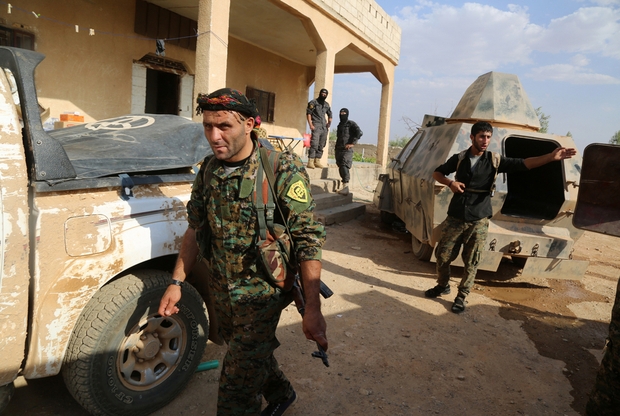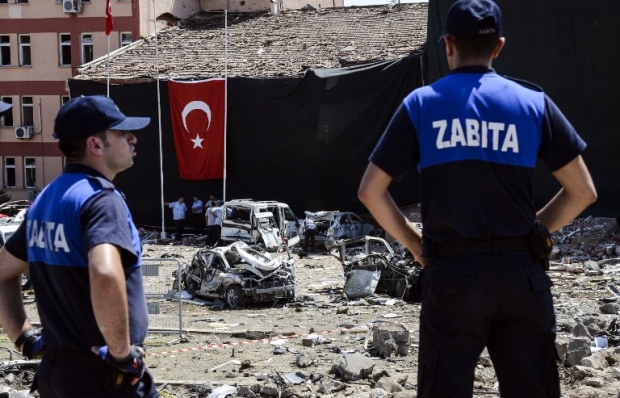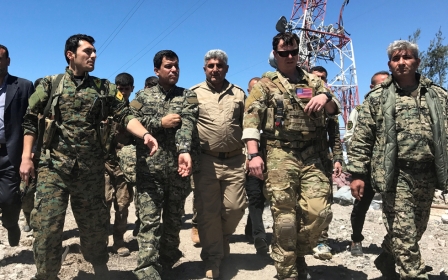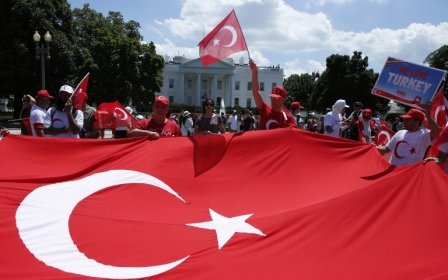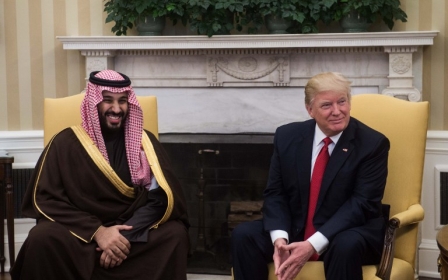He's arming the YPG. Now Trump should tell Erdogan to restart PKK peace talks
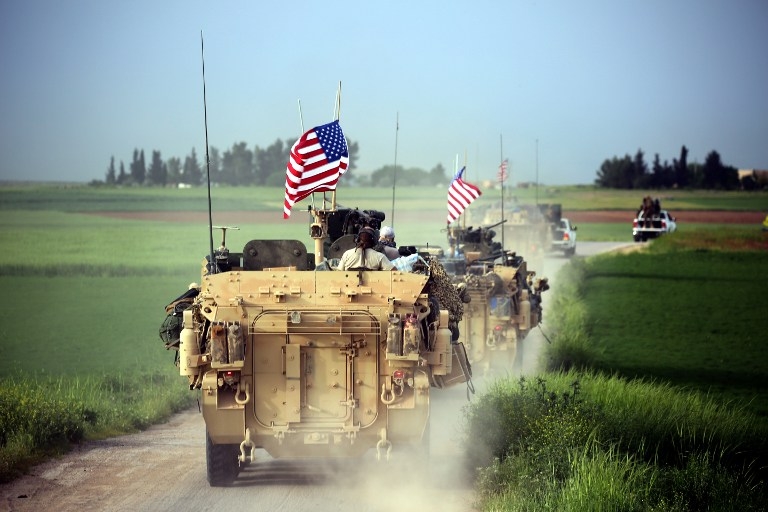
Turkey’s objections to the US plan to give heavy weapons to the Syrian Kurdish YPG militia are predictable but futile.
The Trump administration’s specialists on Syria, the new brooms at the National Security Council and the Pentagon know, as well as the previous Obama team did, that the YPG are reliable “boots on the ground” for the looming struggle to liberate Raqqa, the Islamic State (IS) group’s self-declared capital in Syria. They need, and can use, the armoured vehicles, mortars, and anti-tank weapons which the Pentagon is planning to deliver.
To rely on Turkey or its surrogate militias as the main force to help in the battle against IS makes no sense
The YPG has considerable battle experience in the fight against IS, starting with the recapture of Kobane from IS in 2014, and moving on to Manbij last year. Although it is subsumed in a coalition of armed groups called the Syrian Democratic Forces who include local Arabs, it is clear that the Kurdish YPG is both the spearhead and the backbone. Their forces also have local legitimacy since tens of thousands of Kurds live in the villages around Raqqa.
It is also clear that the Turkish moves into northern Syria are not primarily directed against IS. They are designed to give the Turkish army and air force a platform for an eventual Turkish push against the YPG. Turkey has a long history of turning a blind eye to armed Islamist jihadis crossing through Turkey into Syria, and in offering them weapons, in the war against Bashar al-Assad’s army. To rely on Turkey or its surrogate militias as the main force to help in the battle against IS therefore makes no sense.
Halt the Syria push
President Trump will be holding his first meeting with Erdogan in Washington next week. The US president needs to stand firm against his Turkish counterpart and warn him not to muddy the waters by trying to push Turkish forces further into Syria.
To call the YPG an arm of the PKK is an out-of-date accusation
Erdogan constantly points to the links between the YPG and the PKK, the Kurdish guerrilla movement in Turkey which has been conducting an armed struggle in southeast Turkey for self-determination since 1984.
The YPG and its political wing, the Democratic Union Party (PYD), owe their inspiration to the PKK’s leader, Abdullah Ocalan, and many PKK cadres have come to train and fight alongside the YPG.
But in the five years since they started consolidating self-rule in northern Syria after the retreat of the Syrian army, the YPG’s homegrown Syrian fighters and commanders have developed enough combat experience against IS to be able to take their own independent decisions. To call them an arm of the PKK is an out-of-date accusation.
Relax the repression
Trump should also counter Erdogan’s negative references to the PKK by reminding him that Turkish officials, with Erdogan’s blessing, held two years of talks with Ocalan between 2013 and 2015. They produced a ceasefire and a sustained period of hope for peace in Turkey.
It was Erdogan who ended the talks in February 2015 by refusing to let them proceed to formal negotiations on a roadmap for a political settlement. He was apparently concerned that the moves towards self-rule by the Kurds in Syria and their success in defeating IS in Kobane, with the help of US air strikes, was giving excessive confidence to the Kurds of Turkey.
The PKK then made the mistake of encouraging local people in Cizre and other predominantly Kurdish cities in southeast Turkey to build trenches and barricades so as to create no-go areas against the police and army. This amounted to transferring what had been a largely rural guerrilla struggle in previous decades into an urban insurrection.
Over a period of nine months, some 2,300 lives were lost among police and civilians. The unequal confrontation lost the PKK support as many local people blamed it for unnecessarily provocative tactics which Erdogan was bound to counter with overwhelming force. Over 400,000 Kurds were displaced.
Erdogan exploited the crisis to gain support among Turkish nationalists in the November 2015 elections and again in last month’s referendum on creating a strong executive presidency. A sizeable proportion of Kurds in village areas have always supported Erdogan’s AK party and they did so again in April.
Refocusing on the southeast
But now that he has won the supreme power he wanted, the time is ripe for Erdogan to relax the repression which helped him to get a Yes vote in the referendum.
No other Nato member state has so many opposition politicians, as well as independent journalists, behind bars
Trump should urge him to release the Kurdish leaders and other imprisoned MPs of the People’s Democratic Party (HDP) which many progressive Turks also back. No other Nato member state has so many opposition politicians, as well as independent journalists, behind bars.
Trump should also advise the Turkish president to resume the peace process with the PKK which he aborted two years ago. The struggle against IS in Syria and Iraq has taken media and political attention away from a much older armed confrontation, the civil war in southeastern Turkey.
The US president has an opportunity to turn the spotlight back on it next week.
- Jonathan Steele is a veteran foreign correspondent and author of widely acclaimed studies of international relations. He was the Guardian's bureau chief in Washington in the late 1970s, and its Moscow bureau chief during the collapse of communism. He has written books on Iraq, Afghanistan, Russia, South Africa and Germany, including Defeat: Why America and Britain Lost Iraq (I.B.Tauris 2008) and Ghosts of Afghanistan: the Haunted Battleground (Portobello Books 2011).
The views expressed in this article belong to the author and do not necessarily reflect the editorial policy of Middle East Eye.
Photo: US forces, accompanied by Kurdish People's Protection Units (YPG) fighters, drive their armoured vehicles near the northern Syrian village of Darbasiyah, on the border with Turkey on 28 April 2017 (AFP)
New MEE newsletter: Jerusalem Dispatch
Sign up to get the latest insights and analysis on Israel-Palestine, alongside Turkey Unpacked and other MEE newsletters
Middle East Eye delivers independent and unrivalled coverage and analysis of the Middle East, North Africa and beyond. To learn more about republishing this content and the associated fees, please fill out this form. More about MEE can be found here.



